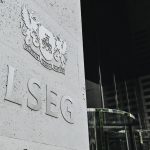
FTSE 100 Rises as Pound Strengthens Above $1.37 Against Dollar
5 minute read

British stock market gains momentum as major energy infrastructure plan and retail sales growth boost investor confidence
Key Takeaways
- FTSE 100 rises 0.2% as the British pound strengthens above $1.37 against the dollar, outperforming mixed European markets where Germany’s DAX fell 1%
- UK house prices drop 0.8% in June, marking the biggest monthly decline in over two years with average prices at £271,619, reflecting weaker demand after stamp duty increases
- Ofgem approves £24 billion energy investment in 80 new projects to upgrade Britain’s electricity supergrid, part of an £80 billion program to quadruple network capacity by 2031
Introduction
British markets opened higher on Tuesday as the pound strengthened above $1.37, providing a boost to domestic equities amid mixed signals across the UK economy. The FTSE 100 gained 0.2% while the British pound advanced 0.2% against the dollar, contrasting with weaker performance in European markets.
The positive market sentiment comes despite significant economic adjustments, including the largest monthly decline in house prices in over two years and rising retail inflation. These developments highlight the complex economic landscape facing UK businesses and consumers.
Key Developments
London’s main equity indices showed divergent performance in morning trading. The FTSE 250 climbed 48.46 points to 21,674.72, while the AIM All-Share gained 0.5% to 774.20. However, the Cboe UK 100 declined slightly to 874.49.
European markets displayed weakness, with Germany’s DAX index falling approximately 1% and France’s CAC 40 declining 0.2%. Asian markets were similarly mixed, with Tokyo’s Nikkei 225 dropping 1.2% while China’s Shanghai Composite improved 0.4%.
Corporate earnings provided mixed signals about economic conditions. J Sainsbury reported a notable 4.9% increase in retail sales excluding fuel for the first quarter, with grocery sales rising 5% and general merchandise climbing 4.2%.
Market Impact
The housing market showed clear signs of adjustment following policy changes earlier this year. UK house prices fell 0.8% in June, significantly exceeding economists’ forecasts of a 0.2% monthly increase. This decline brings the average UK house price to £271,619.
Annual house price growth decelerated sharply to 2.1% from 3.5% in May, reflecting the impact of stamp duty increases implemented in April. Regional variations remain pronounced, with Northern Ireland leading at 9.7% annual growth, followed by Scotland at 4.5%.
Retail inflation emerged as another economic pressure point. Shop prices increased 0.4% year-on-year in June, marking the first rise in nearly a year, driven primarily by a 3.7% surge in food prices.
Strategic Insights
The UK’s energy infrastructure is undergoing a fundamental transformation with Ofgem’s approval of £24 billion in new investments. This initiative represents the beginning of an £80 billion program designed to quadruple electricity network capacity and connect up to 126 GW of clean power generation by 2030.
The tech sector continues to demonstrate resilience, with UK startups raising over $7 billion in venture capital during the first half of 2025. Growth-stage companies captured 81% of venture capital investment, indicating sector maturation and scaling focus.
Corporate consolidation accelerated with competition regulators approving Aviva’s £3.7 billion acquisition of Direct Line, creating Britain’s largest motor insurer. This deal reflects ongoing industry consolidation trends across multiple sectors.
Expert Opinions and Data
Robert Gardner, Nationwide’s chief economist, attributed the housing market softening to weaker demand following stamp duty increases. “The softening in price growth may reflect weaker demand following the increase in stamp duty at the start of April,” Gardner noted, while maintaining that underlying conditions for potential home buyers remain supportive.
According to Investing.com, the market movements reflect broader economic adjustments as various sectors adapt to changing policy environments and economic conditions.
Ofgem chief executive Jonathan Brearley emphasized the strategic importance of energy infrastructure investments for Britain’s energy security. The regulator trimmed over £8 billion from company bids through rigorous cost scrutiny to ensure value for consumers, though some industry participants argue for more aggressive investment levels.
Conclusion
British markets demonstrate resilience amid significant economic transitions, with equity gains and currency strength offsetting concerns about housing market adjustments and retail inflation. The approval of substantial energy infrastructure investments signals long-term strategic planning for economic transformation.
The divergence between positive market performance and mixed economic indicators reflects the complex adjustment period facing the UK economy. Corporate earnings remain generally supportive while structural changes in housing and energy sectors create both challenges and opportunities for investors and businesses.








